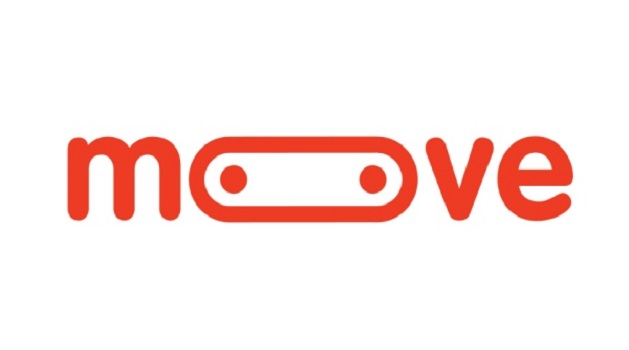General News
Nigeriaelections2015.com Visually Telling Stories in Data
Around the world Big Data, Open Data are topics very much topping the contemporary trends chart in recent time and can be referred to as information management and ease of its availability.
Experts see these as the elements bound to bring evolution to decision making in all aspects.
In Nigeria, these terms are just catching on, but data being generated is overtly on the increase and what other way to move to next levels other than to properly structure and analyze them.
For this reason Bizinvent creative and technology company created Nigeriaelections2015.com, a visual listening project focused on mining, generating and visualizing data from Nigerian Elections chatter.
Following the result of the presidential primaries of the Peoples Democratic Party (PDP) and All Progressive Congress (APC), the parties and supporters of the incumbent president Goodluck Jonathan and former military head of state general Muhammadu Buhari have been in fierce battle of words and media banter in the race of who wins the presidential elections scheduled Feb 14 2015.
The data lake born from this has been overwhelming, and Bizinvent wants to leverage all data in all formats; facts, ideas, topics, issues, statistics, queries available in volumes, velocity, veracity and variety – all to a bare minimum of words, numbers and very beautiful visuals.
Visual listening is the new way of data and information consumption, and Bizinvent looks to explore all dimensions as time goes.
“The project is presently exploring all dimensions of electoral data, analogue, digital data and more which has been overlooked. I think that this data if properly analyzed would help us to interpret history; manage the present; and, plan for the future” said Ugochukwu Aboh, the data cruncher on the project.
Aboh said that a well informed electorate is a pre-requisite for democracy, thus the project wants to look at these three things specifically and more in the electoral chatter;
“The Past, what happened and what can we learn from it? The present, what is happening and what can be done differently? The future – what might or might not happen and what might we do or not do if this happens, or what be done to prevent this and that from occurring?
“The focus is also to aid us clearly understand the elections chatter, cutting through the noise and revealing the hidden connections, patterns and the ordinary Nigerian citizen’s dilemma underneath it all which in turn would lead to informed decisions, accurate implementation, transformation and change for a country that has known its fair share of turmoil; drudgery, fraud, insurgence, mass deaths,” Aboh added.
The project is by Bizinvent a creative and technology company that is focused towards providing enterprise solutions for small and medium scale businesses.
Bizinvent is also the creator of TheBusinessAim, a publishing platform and resource fostering social economic independence by advancing business, innovation, education and entrepreneurship amongst other verticals.
General News
Cybervergent Selected as World Economic Forum’s 2025 Technology Pioneer Company

In affirmation of its global standing, Cybervergent, a Pan-African technology company that leverages artificial intelligence to transform how organisations manage risk, governance, privacy, and cybersecurity, has been selected as one of the World Economic Forum’s (WEF) Technology Pioneers for 2025—a global cohort spotlighting companies transforming industries through breakthrough technologies and responsible innovation.

The WEF, an international organisation committed to improving the state of the world through public-private collaboration, brings together global leaders to shape economic, technological, and societal agendas. Cybervergent now joins this global community.
The company is recognized for its innovative approach to building digital trust, reimagining how organisations manage cybersecurity, risk, privacy and governance.
Commenting on the company’s milestone, Adetokunbo Omotosho, CEO of Cybervergent, said, “I am honoured that Cybervergent has been named a Technology Pioneer by the World Economic Forum. This is more than an accolade — it’s a validation of our commitment to redefining cybersecurity, privacy, and risk management to build true digital trust.
“What makes this recognition even more meaningful is the fact that Cybervergent demonstrates innovation in AI and infrastructure can emerge from any region, challenging conventional perceptions.”
Some past recipients of the Technology Pioneer recognition, including Google, Spotify, and Airbnb have gone on to fundamentally reshape global industries.
As a member of the 2025 Technology Pioneers community, Cybervergent will be contributing to discussions shaping cybersecurity, AI, and cyber resilience across industries and the global digital economy.
General News
Moove Plans to Raise $1.2Bn Debt Round for US Autonomous Vehicle Expansion

Moove, an African mobility fintech startup, is on a quest to secure a $1.2 billion debt financing round to support the rollout of a fleet of autonomous vehicles.

This is in partnership with Alphabet Inc.’s Waymo in the United States, according to a Bloomberg report citing sources familiar with the matter.
The startup has since attracted backing, including from Uber Technologies Inc., and entered a strategic partnership with Waymo in December 2024 to provide financing for self-driving cars.
Ladi Delano, co-founder of Moove, noted that the company has a solid financial track record.
“Moove has built strong relationships with some of the world’s leading lenders. We have also fully repaid our first-ever debt facilities, which signals our maturity and marks a key milestone that demonstrates the strength of our platform as we enter the next phase of global autonomous-vehicle infrastructure deployment,” he said.
The round is reportedly oversubscribed, with strong participation from private credit firms and banks.
Waymo has also not made any official statement regarding the funding round. While final details are expected to be concluded in the coming weeks, the deal will mark a significant milestone for the firm as it ramps up its global ambitions.
Founded in 2020 by Nigerian entrepreneurs, Ladi Delano and Jide Odunsi, Moove began by providing vehicle financing for ride-hailing drivers in Africa’s largest cities.
General News
Firm Explores the Evolution of AI-powered Ransomware with Password-gated Capabilities

Kaspersky experts have revealed the inner workings of FunkSec — a ransomware group that illustrates the future of mass cybercrime: AI-powered, multifunctional, highly adaptive and operating on volume with ransoms as low as $10,000 to maximise profits.

Kaspersky’s Global Research and Analysis Team (GReAT) constantly monitors the ransomware threat landscape, where attacks continue to rise. According to the company’s latest State of Ransomware report, the share of users affected by ransomware attacks worldwide increased to 0.44% from 2023 to 2024, up by 0.02 percentage points.
While this percentage may appear modest compared to other cyber threats, it reflects the fact that attackers typically prioritise high-value targets rather than mass distribution, making each incident potentially devastating. Within this evolving landscape, FunkSec has emerged as a particularly concerning threat.
Active for less than a year since its emergence in late 2024, FunkSec has quickly surpassed many established actors by targeting government, technology, finance and education sectors. What sets FunkSec apart is its sophisticated technical architecture and AI-assisted development.
The group packages full-scale encryption and aggressive data exfiltration into a single Rust-based executable, capable of disabling over 50 processes on victim machines and equipped with self-cleanup features to evade defenses.
Beyond its core ransomware functionality, FunkSec has expanded its toolkit to include a password generator and a basic DDoS tool — both showing clear signs of code synthesis using large language models (LLMs).
FunkSec’s approach reflects the evolving landscape of mass cybercrime, combining advanced tools and tactics. Kaspersky’s GReAT experts highlight the key features that define their operations:
Password-Controlled functionality
GReAT experts discovered that FunkSec ransomware features a unique password-based mechanism that controls its operation modes. Without a password, the malware performs basic file encryption, while providing a password activates a more aggressive data exfiltration process in addition to encryption to steal sensitive data.
FunkSec packs full-scale encryption, local exfiltration and self-cleanup into a single Rust binary—without a side-loader or a companion script. That level of consolidation is uncommon and gives affiliates a plug-and-play tool they can deploy almost anywhere.
Use of AI in development
Code analysis shows that FunkSec is actively using generative artificial intelligence to create its tools. Many parts of the code seem to be automatically generated rather than manually written. Signs of this generic placeholder comments (such as “placeholder for actual check”) and technical inconsistencies, like commands for different operating systems that don’t align properly. Additionally, the presence of declared but unused functions—such as modules included upfront but never utilised — reflects how large language models combine multiple code snippets without pruning redundant elements.
“More and more, we see cybercriminals leveraging AI to develop malicious tools. Generative AI lowers barriers and accelerates malware creation, enabling cybercriminals to adapt their tactics faster.
By reducing the entry threshold, AI allows even less experienced attackers to quickly develop sophisticated malware at scale,” comments Marc Rivero, Lead Security Researcher at Kaspersky’s GReAT.
High-volume, low-ransom strategy
FunkSec demands unusually low ransom payments, sometimes as little as $10,000, and pairs this with the sale of stolen data at discounted prices to third parties. This strategy appears designed to enable a high volume of attacks, helping the group quickly establish its reputation within the cybercriminal underground. Unlike traditional ransomware groups that seek million-dollar ransoms, FunkSec employs a high-frequency, low-cost model — further underscoring its use of AI to streamline and scale operations.
Expands beyond ransomware
FunkSec has expanded its capabilities beyond the ransomware binary. Its dark leak site (DLS) hosts additional tools, including a Python-based password generator designed to support brute-force and password-spraying attacks, as well as a basic DDoS tool.
Advanced evasion
FunkSec employs advanced evasion techniques to avoid detection and complicate forensic analysis. The ransomware is capable of stopping over 50 processes and services to ensure thorough encryption of targeted files. Additionally, it includes a fallback mechanism to execute certain commands even if the user launching FunkSec lacks sufficient privileges.

 Telecom2 days ago
Telecom2 days agoMTN Nigeria Debuts Game-Changing CPaaS Platform at NextNow Forum

 Telecom3 days ago
Telecom3 days agoNCC Approves MTN, 9Mobile Roaming Collaboration Deal

 E-Financial2 days ago
E-Financial2 days agoNAICOM Issues New Licenses to SanlamAllianz Life, General Insurance

 News2 days ago
News2 days agoAMCON Confirms ₦100Bn Sale of Ibadan DisCo Amid Legal Disputes

 E-Financial2 days ago
E-Financial2 days agoGTCO to Become First Nigerian Bank to List on London Stock Exchange

 E-Business2 days ago
E-Business2 days agoDomain of Deception as Attackers Deploy Spyware Under Guise of Legal Threats

 E-Financial3 days ago
E-Financial3 days agoWorld Bank Approves Extra $65m for Nigeria’s SPESSE

 E-Financial3 days ago
E-Financial3 days agoEcobank Taps Google Cloud to Deepen Financial Inclusion
















